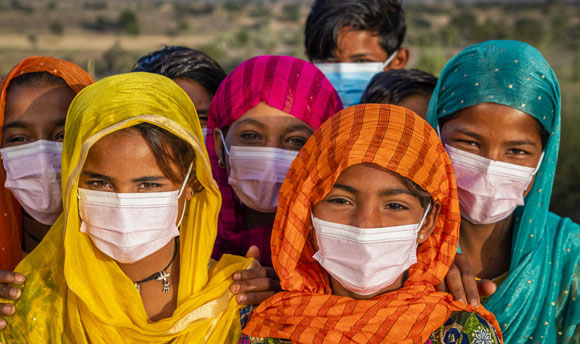Research Ethics - Health & Safety Guidance
Health and Safety Procedure 13
| Document : |
HSP13 Overseas Travel Safety |
|---|---|
| Version: | 2.0 |
| Date: | 29.10.2024 |
| Review Date: | Annual |
| Updated by: |
D. Kennedy – Health and Safety. |
1 TRAVEL STANDARD
The University has a duty of care to all who travel overseas for work and studies and needs to be assured that those travelling have fully assessed the risks and put appropriate measures in place to control the risks.
Queen Margaret University have partnered up with Crisis24, a comprehensive travel risk management provider. The web portal and mobile app, named Crisis24 Horizon, provides users with risk ratings and location intelligence, threat zones, advice sheets and a 24/7 hotline and crisis signal.
Crisis24 is embedded into the Travel Standard at QMU and sets minimum requirements to ensure that travellers have appropriate insurance cover in place and suitable support plans and supervision agreements. The Travel Standard requires that:
- Travellers intending to travel overseas must obtain prior approval from their line manager or supervisor before making any related travel arrangements or commitments
- Travellers create a Crisis24 Horizon account.
- Travellers download the Crisis24 Horizon app, available on both iOS and Android devices.
- Travellers complete the mandatory e-learning modules within the Crisis24 Horizon platform.
- A risk assessment is completed for all travel overseas and submitted for approval to the line manager or supervisor.
- Travellers or their line manager/supervisor inform Finance of the travel to ensure valid insurance. FinanceOffice@qmu.ac.uk should be emailed with the travel details: name, destination, and travel dates.
This procedure has been created for UK residents with a British Passport. Those who are non—UK passport holders should also ensure they obtain the necessary information and guidance from the country that issued the passport they are travelling on, the embassy and/or consulate.
2.0 RESEARCHING YOUR TRAVEL DESTINATION
It is essential to research the country you are visiting and obtain information that will assist you in completing your travel risk assessment. This is particularly important if you are visiting a country for the first time, one you have not visited recently, or are aware that there may be security issues.
Our primary source of intelligence for overseas travel comes from the Crisis24 Horizon portal. However, we recommend the use of other publicly accessible advice and guidance, such as FCDO and Travel Health Pro, to supplement your risk assessment process.
If the Crisis24 Horizon portal has limited information on the area you are visiting, you can obtain a tailored intelligence report by emailing support@crisis24.com. You will need to provide details of your intended travel such as locations and dates. It can take up to 72 hours to receive a tailored report.
Please note that Intergovernmental organisations (IGOs) or non-governmental organisations (NGOs) such as the United Nations, UNICEF, etc., have their own robust risk assessment and control measure processes that you may need to follow. This should be detailed in your QMU Overseas Travel risk assessment.
The above sites will give safety and security advice, from terrorism and kidnapping to common crimes that impact travellers. Be aware of differences in cultural norms and laws in the country you are visiting. The Gov.uk site also has specific advice for disabled and LGBT travellers.
Travel Risk Rating
High-risk travel is defined as:
- Travel to countries or locations with a Crisis24 Horizon overall risk or country overview risk rating equal to or greater than 3.5..
Extreme-risk travel is defined as:
- Countries or locations with a Crisis24 Horizon overall risk or country overview risk rating that is equal to or greater than 4.5.
Check whether there are any special occasions such as public holidays, local elections, political conferences, or major sporting events in the destinations you are travelling to. As well as affecting prices, hotel availability and traffic, security may be heightened, and the likelihood of terrorist attacks can increase. If you have contacts in the country being visited, you may also find it helpful to discuss safety and security needs with them, as they may be able to help you.
3.0 RISK ASSESSING YOUR TRAVEL DESTINATION
Once you have thoroughly researched the country and area you are visiting, you must complete a risk assessment. It is essential that a suitable and sufficient risk assessment is completed, highlighting any risks associated with appropriate control measures in place to eliminate or reduce those risks as low as practicable. The QMU Overseas Travel Risk Assessment template must be used.
If you need help completing your risk assessment, please contact the Health, Safety and Wellbeing Team (hs-staff@qmu.ac.uk)
Once you have completed the risk assessment, you must submit this to the relevant individual for approval – refer to 9.0 Travel Approval for more information on this.
4.0 TRAINING
To help you prepare for your travel, Crisis24 Horizon has created a series of e-learning modules. Completion of these travel modules is mandatory for all overseas travellers. Please use the web portal to access the training and certificate of completion.
5.0 TRAINING FOR TRAVELLERS TO HIGH OR EXTREME-RISK DESTINATIONS
Additional precautions and approval steps for travellers to high or extreme-risk locations are required.
Travellers must be provided with a working smartphone capable of running the Crisis24 Horizon app and a SIM with sufficient overseas data for the duration of the trip.
Travellers are recommended to obtain additional training for travel to high or extreme-risk destinations.
- Hostile Environment First Aid (HEFA)
- Hostile Environment Awareness Training (HEAT)
If you need further support or information on training, please contact the Health, Safety and Wellbeing Team (hs-staff@qmu.ac.uk).
6.0 OTHER COMPETENCE AND TRAINING CONSIDERATIONS
Depending on the nature of your trip, you may also need to demonstrate additional competence. Those authorising non-UK visits will need to assess the competence of the independent traveller or group leader, considering the following:
- The nature of the visit.
- The traveller's experience and knowledge of the country being visited.
- Access to competent local support during the visit.
- The University's and your department's standards/requirements for non-UK visits.
- Risks associated with the country/environment you are visiting and appropriate precautions to protect yourself and others you are supervising, good travel safety practices.
- Relevant first aid qualification when working in remote areas with limited medical facilities.
Competence can be gained in various ways, including formal training, self-development or learning from others.
If you need further support or information on training, please contact the Health, Safety and Wellbeing Team (hs-staff@qmu.ac.uk).
7.0 TRAVEL HEALTH
If you have an existing medical condition that may affect your fitness to travel safely, you should discuss this with your GP, confirm whether you are fit to travel, and, if so, what precautions may be needed to ensure your health and safety while away.
Remember that access to medical support may be poor in some countries or remote locations. QMU travel insurance requires that you are medically fit to travel (your insurance could be invalidated if it is subsequently found that you were not).
You may need vaccinations, medication, or to take specific precautions to protect yourself from health risks prevalent in the country or area you are visiting. The following sites will help you identify particular precautions required for the country you travel to.
- NHS country-specific advice.
- Travel Health Pro (travel health information by country or specific health risks).
You should arrange for appropriate vaccinations/medication with your GP or a travel clinic at least eight weeks before travel (as sometimes a course of vaccinations is needed). Let your line manager or supervisor know you will need vaccinations or medication for travel so that you can reclaim the cost of your expenses.
If you have any doubt about the legality of carrying a particular drug into a country, consult the embassy or consulate of that country first. Keep medicines in their original, labelled containers. If a medication is unusual or contains narcotics, carry a letter from your doctor attesting to your need to take the drug. Take enough medication for the duration of your trip plus seven days (for emergencies). Further advice can be found on the Travel Health Pro website.
8.0 BOOKING YOUR TRAVEL
You must use the University’s Expenses and Benefits Procedure (SharePoint Document) when considering travel options. Travel should be by the cheapest means of transport, which is consistent with the business objective of the trip. Usually, this means economy-class air travel abroad. However, where premium rate travel enables key personnel to utilise their time more effectively, reimbursement of these higher costs may exceptionally be allowed at the discretion of the budget holder, which must be obtained before making the booking.
All bookings should be made through Key Travel. As well as sourcing suitable flights/transport and accommodation, they offer various services to enhance safety, such as travel risk information email/texts and a 24-hour emergency travel rescheduling service. They will also carry out health and safety checks on the suppliers they recommend.
Use hotels you know and trust or have been recommended by the University’s travel management providers. Reputable four/five-star hotels are not just for comfort; they generally have higher security standards and robust medical emergency procedures.
Please be aware that the UK Civil Aviation Authority details a list of foreign airlines which do not fulfil the necessary international safety standards. No travel arrangement should involve the use of the airlines detailed in the list provided by the UK Civil Aviation Authority.
9.0 TRAVEL APPROVAL
Before you travel, you will need to obtain approval:
- From your line manager/supervisor for all travel up to a 3.5 risk rating.
- From your Head of Division/Department for all travel from a 3.6 to a 4.4 risk rating.
- From the Dean/SLT for all extreme risk travel above a 4.5 risk rating.
Once you have completed the travel risk assessment and e-learning training, send the risk assessment, accompanied by all the travellers' training certificates, to your line manager/supervisor. The department should retain a signed risk assessment for five years for auditing and inspection purposes.
Travellers or their line manager/supervisor must inform Finance of the travel to ensure valid insurance. FinanceOffice@qmu.ac.uk should be emailed with the travel details: name, destination, and travel dates.
10.0 WHILE YOU ARE AWAY
Ensure you know the emergency contact numbers at your destination, how to obtain emergency advice and assistance from our insurance provider and whom to contact at the University if you need help. Always keep a copy of the relevant insurance documents with you.
Make a note of the contact details of the nearest Embassy or Consulate for your nationality. For British Citizens, you can find locations through the British Consulate or Embassy. Find out what help is available and read the Government's guidance on how to deal with a crisis overseas.
Once fully registered with Crisis24 Horizon, you can sign up for regular e-mail alerts and notifications through the app.







